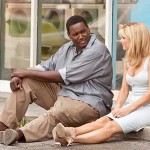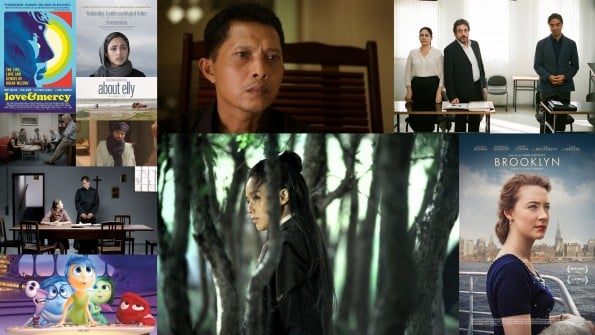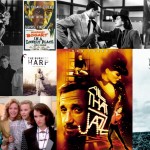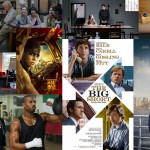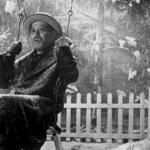Normally I have more fun doing this list than an annual end of the year favorites, but this year has been different. Perhaps that is because I’ve seen less older films. Perhaps that is because one’s self-education means fewer obvious lodes that have not yet been mined. Perhaps it is because I’ve seen more new releases.
For whatever reason, I’ve had this list languishing on the shelf and have been putting it off. I almost considered not doing it, but then I felt that, if nothing else, a trove of such lists could serve as a map for myself in the future that charted the development of my film interests.
So here it is–a list of my ten favorite “new to me” films. These are films that I first screened in 2010 even though they have been previously released.
10) It Might Get Loud (2008) — Davis Guggenheim
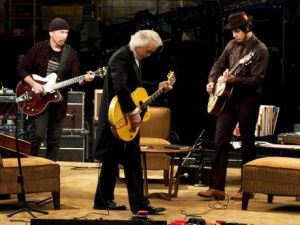
The funny thing is, I’m still not sure I think this film was a success. That is to say, I couldn’t shake the feeling that Guggenheim brought these three (Jimmy Page, The Edge, Jack White) together in the hopes that something would happen in their meeting. I wondered during the screening if the editing weren’t used more to parcel out a thin entrée rather than to build anticipation towards a rousing payoff. That said, there is something compelling about artists making art, and It Might Get Loud is at its best when it shows artists in process rather than talking about it. I don’t have an emotional investment in any of the musicians profiled (or their bands), so it is to the film’s credit that it could educate me somewhat about a process–playing the guitar–that is foreign to me. There’s a huge gulf between being able to do something, whether instinctively or through practice, and being able to talk about it in a was that is accessible while still being concrete.
9) Cleo from 5 to 7 (1962) — Agnes Varda

I have had a number of talks this year with people after movies about unlikeable characters. If there is an overarching theme for this list it could be that it is populated with people that at other times in my life would have left me with a strong antipathy to the movies they inhabited. This film’s conceit is that Cleo is awaiting test results from her doctor, and the inherent sympathies in such a situation are enough to to temper one’s judgment about her as a person…at least for a little while. Within that phrase “little while,” and shaded by the intellectual justification that Cleo is, after all, a character in a film and not a real, actual person facing her own mortality, lies a realization of one’s own (okay, my own) impatience, intolerance, indifference. The claims that others place on us for our sympathy, our understanding, our attention, are so often in real life demanded rather than requested, that we don’t see how they are tied to strings of obligation, necessity, and habit.
8) The Gates (2004) — Ferrera and Maysles

There was one subject I felt I understood better after watching this documentary, and it had nothing to do with Christo, Jean-Claude or contemporary art. Indeed, in a year where I saw a lot of good art documentaries (Exit Through the Gift Shop, Art of the Steal, Marwencol), what stuck in my memory here was the setting, In particular I was bemused about the ways in which the at times Kafkaesque process of getting permission to do the installation in Central Park revealed the particulars of those who live in New York. In particular I marveled at how quick and without seeming irony was the transition from “not in my back yard!” to “only in New York, baby!”
I wish I could report that I found that transition to be funny or endearing or cute. Instead I saw–or rather felt–a typological similarity between the disconnect of obstinate obstructionism of the process and boastful pride in the result and the sorts of political logic we experience in our country at a national level. It’s not that I find it amazing that this project got done. I find it amazing on some days, given the citizenry and system of government we have, that anything ever gets done.
7) Born Rich (2003) — Jamie Johnson

I have been on both sides of this divide. Oh, I’ve never been rich like these people are rich, but I think the conflicts, problems, and issues that sprout as a result of uneven distributions of income are different only in degree when one contemplates the uber-rich. What I will say is that I’ve experienced life in a small circle where I made (or had) substantively less than others in the circle, and I’ve lived in communities and places where the gulf between what I had and what others did not was no doubt enough to make my way of life seem as alien to others as that of heiresses and royalty seem to me. The revelation–not a profound one, but effective nonetheless–is that for those born into a situation, that situation is normal. The “Born” is as important a part of the title as the “Rich.” It is not that these are evil monsters or caricatures, extras who have escaped from an Oliver Stone movie. Would any of us, in this situation not take the money? The film probably elicits less sympathy (from me) because it spends so much time asking for it. While I’m not particularly buying any notion that loneliness and alienation are larger amongst the rich, I do know a small part (by virtue of being a Democrat in Republican enclaves or a liberal in fundamentalist enclaves) of what it is to have seething resentment and hate (yeah, that’s a strong word) form the greater part of the air you breathe any time you go outside your own bubble.
6) Bobby (2006) — Emilio Estevez
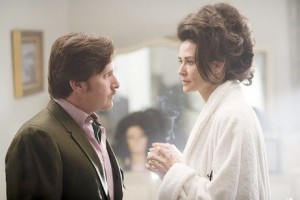
Having already written a little about this film in my top ten capsule about Estevez’s The Way, I may have driven my central points about Estevez’s maturation process into the ground already. I would like to take a moment, then, and talk about performances in this film. Since I suspect that there will be some that may dismiss Estevez’s contributions to The Way by intimating that he was fortunate enough to have one of the great actors of our time, Martin Sheen, as his father, I would like to bring forward, for your consideration, Lindsay Lohan, Ashton Kutcher, Helen Hunt, and Shia LaBeouf. Hey, maybe Estevez isn’t talented, maybe he’s just popular. All I know is that the last movie I saw with Shia LaBeouf that was written and directed by the same guy was Wall Street: Money Never Sleeps, and if you took the names off those two films and asked 100 hundred viewers which writer/director had an Oscar in his pocket, I don’t know how many would say Oliver Stone. If you insist on thinking that Estevez is just fortunate enough to surround himself with talent, I will retort that Lindsay Lohan made one other film released in the year 2006. It was Just My Luck. Have you seen Just My Luck? I have. Hunt has been charming and effective in some movies, but she does her best work in years here. Add to that the common sense to get out of the way when Anthony Hopkins, Laurence Fishburne, or Harry Belafonte (and, hey, anyone who can coax Belafonte onto the screen for anything is alright in my book) is on screen, and you begin to wonder if there isn’t some reason all these actors want to be in his movie.
5) Pressure Cooker (2008) — Becker and Grausman

Race, class, and education are three of the most volatile topics in American politics. In the year that gave us the much ballyooed Waiting For Superman, the documentary I preferred was about inner city (gee, what’s that a euphemism for?) Philadelphia high school students competing for scholarships to go to cooking school. Much has been made of the fact that with the recent global financial recession, we may be facing one of the first generations who of Americans who are less affluent than their parents. In the face of obstacles, there may be people like Greenberg of Scott Pilgrim, mopey mopes who mope about how miserable their lives are. What is amazing and inspiring to me about Pressure Cooker is the glimpse it provides of just how hard people will work if there is any credible hope for a payoff. One could parse this film, I suppose, as yet another inspiring teacher story, a Stand and Deliver in the kitchen. To do so, I think, sells the kids short. Much has been made in the wake of Waiting for Superman, that Americans test highest in self-confidence, even in the face of lowering test scores. When all you’ve got is a belief in yourself, though, the line between the self-affirmation of the self-esteem culture and the heroic refusal to quit can become more than a little blurred.
4) Gun Crazy (1950) — Joseph H. Lewis
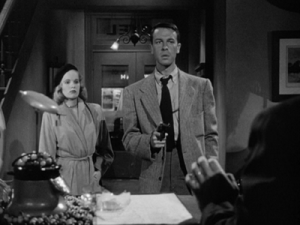
Not all dramas are historical or biographical allegories. Not every war movie is about the current war. Not every conflict a subconscious, Freudian way for the author to talk about his internal conflicts. Were everything an allegory there would be no tragedy since there would be no universal conflicts.
The fact that Gun Crazy (review here) is a noir adaptation by a writer who had been blacklisted in Hollywood is not crucial to understanding nor enjoying it. Like so much of Dalton Trumbo’s work, though, the film suddenly looks and feels a lot less conventional when filtered through that lens. Perhaps because I feel the gap between the surface and foundation of society, between its public face and its private cynicism, I find a poignancy in Trumbo’s inability to vent his apoplectic outrage at the hypocrisies enmeshed in the actions of the vindicatively moral members of his society. Everything must be inferred, and yet every frame, every second, shows a kind of sympathy for the criminal. It’s almost an inverse of Billy Joel: he’d rather cry with the sinners than laugh with the saints.
3) Fool Moon in Paris (1984) — Eric Rohmer

Not much I can add to what I’ve written in these pages about Eric Rohmer. In the last year or so, my Rohmer viewing has slowed, but not abated. That has had more to do with the difficulty in procuring some of his lesser known titles. Every one I get is a treat, though, and I’ve come to view Rohmer’s variations on a theme as being a fascinating accomplishment.
I’ve spend some time over the years thinking about why I like Rohmer’s films and absolutely, positively cannot abide Woody Allen’s. Rohmer’s characters are often venal, self-absorbed, narcissistic, and yet he seems to view them neither with contempt nor with (the more frustrating) obstinate excuse. Rohmer’s films always feel occupied by human beings rather than characters to me, and while I don’t often agree with their decisions, I most always feel as though I understand them and that they are being presented to me in good faith, first and foremost, as lenses into the human condition rather than as proscriptions for what it means to be a good person.
2) Force of Evil (1948) — Abraham Polonsky
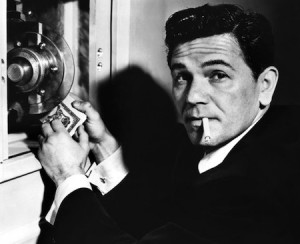
Speaking of the Hollywood 10….
In a 1962 interview in Film Quarterly, Polonsky doesn’t exactly eschew the connection between “informing” in his films and his experiences before the McCarthy hearings but he doesn’t go out of his way to underline them the way that Dalton Trumbo does in some of his speeches. There is a weird sort of tension in Force of Evil that I tend to ascribe to an empathy towards the character who redeems himself ultimately by informing on himself. If there is a growth in John Garfield’s John Morse it comes in the realization that he cannot control the universe. He cannot absolve himself from responsibility for his actions; he convinces himself that he can, if he gets enough power, protect those whom he loves from the consequences of living in the environment he helped create. Among many topics that enthrall me is that of the psychological lure of theories of environmental determinism as an escape from responsibility. What’s fascinating to me about this time period is that you see people who acknowledge the influence of environment but have not yet lost, postmodern style, the belief that individuals can actually shape the environment that shapes them. This makes John’s transformation sound more overt than it really is. I’m amazed that the film can portray a career gangster making a (seemingly) sudden core change that comes across as realistic.
1) The Earrings of Madame de…. (1953) — Max Ophuls
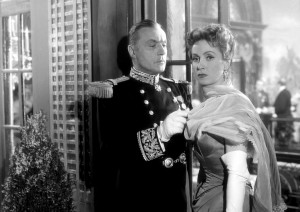
I tried last year to get into Ophuls, managing an appreciation for Lola Montes, but he’s always been one of those directors that I felt I should like rather than one for whom an affinity came naturally. The Earrings of Madame de… is one of those films that reminds me not to give up too quickly when others tell me something is there and I don’t see it at first glance. I pretty much felt about these characters the way I feel I’ve been told I’m supposed to feel about Carl Theodor Dreyer’s Gertrud. I felt a kind of pity based on their deep sadness that is anesthetized rather than cured through opulence. It probably helped that I did my semi-annual re-read of Edith Wharton’s The House of Mirth about the same time I saw the film and thus had connections between money and misery on the brain. Aside from being thematically in my sweet spot, I love the way Ophuls doesn’t communicate to you how you are supposed to feel. Instead he just tells the story and forces you to contemplate what you actually do feel. I wish more films today did that rather than just beating you over the head with, “now is when you are supposed to laugh, now is when you are supposed to be angry, this is the guy you are supposed to hate, now you are supposed to be shocked…” Films are actually a lot more interesting when they elicit reactions rather than inform you that you are supposed to have them.


